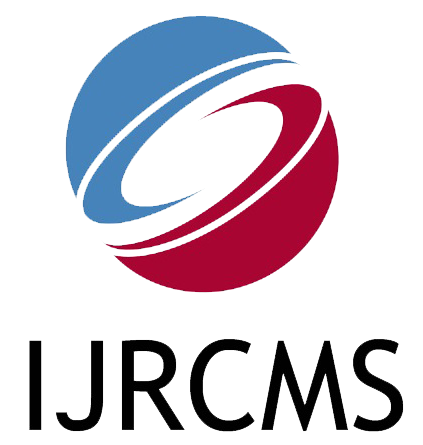| Title: DATA-DRIVEN DECISION-MAKING IN HUMAN RESOURCES: LEVERAGING ANALYTICS TO ENHANCE WORKFORCE PERFORMANCE AND BOOST PRODUCTIVITY |
| Author: Dr Radhakrishna Gowda V and Mr. Abhishek Suvarna |
| Abstract: In the modern business landscape, human capital remains a critical driver of organizational success. Beyond technical skills, a motivated and well-managed workforce is essential for achieving sustained growth and innovation, particularly in the technology-driven environment. Human Resource (HR) analytics, also referred to as people analytics, has emerged as a transformative tool, enabling organizations to make data-driven decisions that optimize workforce performance, enhance productivity, and align HR practices with strategic objectives. This research investigates the impact of HR analytics on workforce management in the Information Technology (IT) sector of Karnataka, a region renowned for its burgeoning IT industry centered in Bengaluru. The study emphasizes how HR analytics can address challenges related to talent acquisition, skill shortages, employee retention, and productivity enhancement in this competitive sector. HR analytics leverages data analysis techniques to collect, analyze, and interpret workforce data, offering actionable insights for decision-making in areas such as recruitment, training, performance evaluation, and employee engagement. By integrating advanced metrics and predictive analytics, organizations can identify trends, forecast talent demands, and design interventions tailored to specific workforce needs. This research highlights the role of HR analytics in transforming HR from a traditional administrative function into a strategic partner that directly contributes to business outcomes. This study employs a descriptive research design to examine the relationship between HR analytics adoption and workforce performance in Karnataka’s IT sector. Data were collected through structured surveys administered to 204 employees across multiple IT firms, with a focus on understanding perceptions of HR analytics and its influence on productivity, engagement, and retention. The variables analyzed include HR analytics adoption, employee productivity, engagement levels, and turnover rates. Descriptive statistics and correlation analysis were employed to explore relationships among these variables, offering a comprehensive understanding of the transformative potential of HR analytics. The findings reveal that HR analytics significantly enhances organizational efficiency and productivity. By utilizing evidence-based decision-making, HR professionals can identify productivity drivers such as training effectiveness, employee engagement, and performance outcomes. Organizations that effectively implement HR analytics report improved hiring precision, targeted training programs, and proactive measures to address skill gaps. Moreover, HR analytics facilitates strategic alignment by linking HR initiatives to broader organizational goals, ensuring that workforce strategies contribute directly to business objectives. Enhanced employee engagement, reduced turnover, and improved job satisfaction are additional benefits, highlighting the multifaceted impact of HR analytics on organizational success. The IT sector in Karnataka, particularly in Bengaluru, faces unique challenges due to rapid technological advancements, high employee turnover, and intense competition for skilled talent. This study underscores the critical role of HR analytics in addressing these issues. By analyzing workforce data, organizations can proactively manage talent pipelines, design retention strategies, and foster a culture of continuous learning and development. The predictive capabilities of HR analytics further enable organizations to anticipate future workforce needs, mitigate risks, and remain competitive in an ever-evolving industry. Despite its numerous benefits, the adoption of HR analytics in India remains at a nascent stage. The study identifies barriers such as low awareness, inadequate training, and resistance to change among HR professionals. Addressing these challenges requires a concerted effort to enhance the competency of HR practitioners, invest in advanced analytics tools, and foster a data-driven culture within organizations. By overcoming these obstacles, companies can unlock the full potential of HR analytics and drive sustained growth and innovation. This research contributes to the growing body of knowledge on HR analytics by providing insights into its practical application and impact in the Indian IT sector. It highlights the strategic importance of integrating analytics into HR practices and underscores the need for organizations to embrace data-driven decision-making to achieve long-term success. The study also offers actionable recommendations for HR professionals and business leaders, emphasizing the importance of training, resource optimization, and continuous improvement in leveraging HR analytics for workforce management. By adopting these strategies, organizations can enhance employee productivity, improve organizational outcomes, and maintain a competitive edge in today’s dynamic business environment. |
| Keywords: Data-Driven Decision-Making; HR Analytics; Productivity Enhancement; Workforce Performance. |
| DOI: https://doi.org/10.38193/IJRCMS.2025.7204 |
| PDF Download |
| Date of Publication: 20-03-2025 |
| Download Publication Certificate: PDF |
| Published Vol & Issue: Volume 7 Issue 2 March-April 2025 |
International Journal of Research in Commerce and Management Studies (IJRCMS)
ISSN 2582-2292, An open access bi-monthly e-journal
